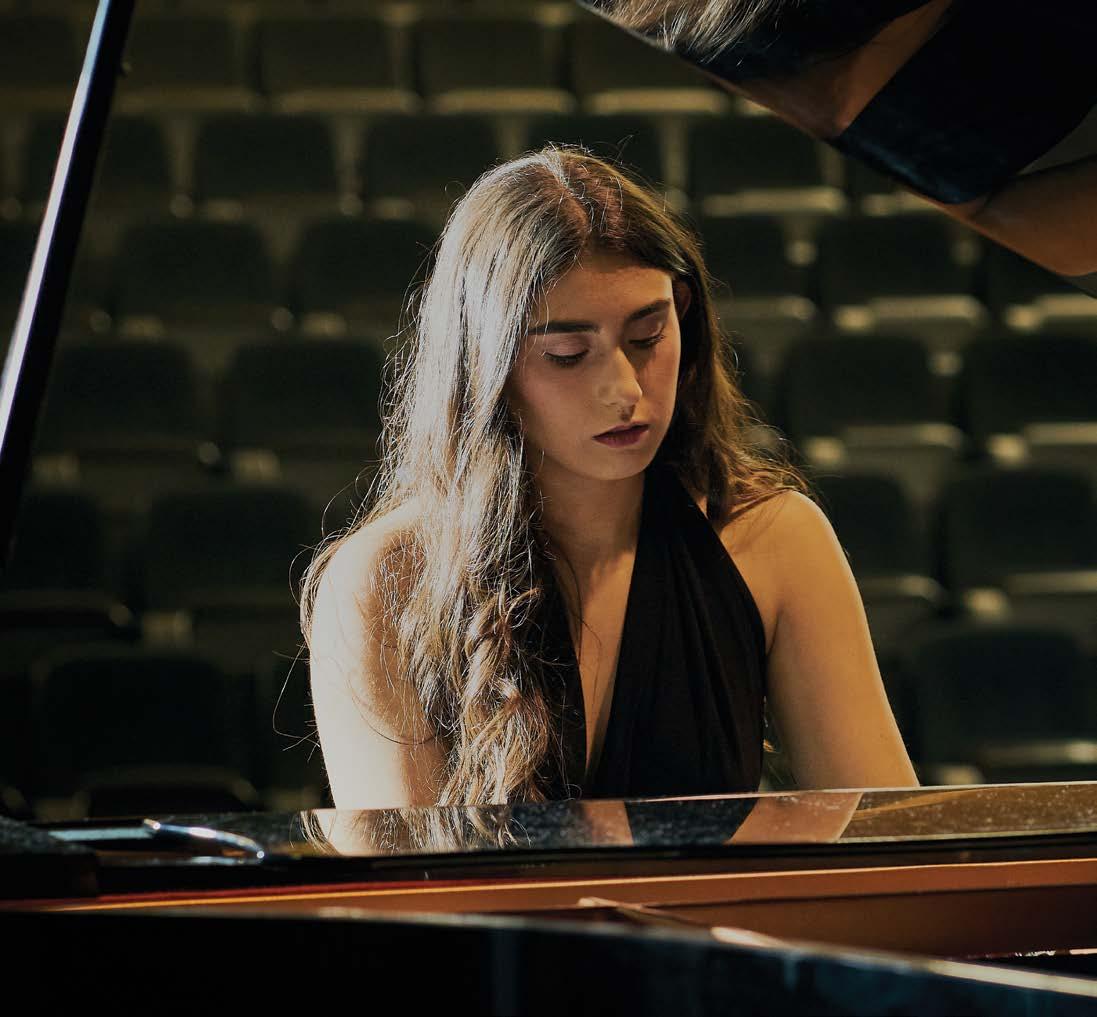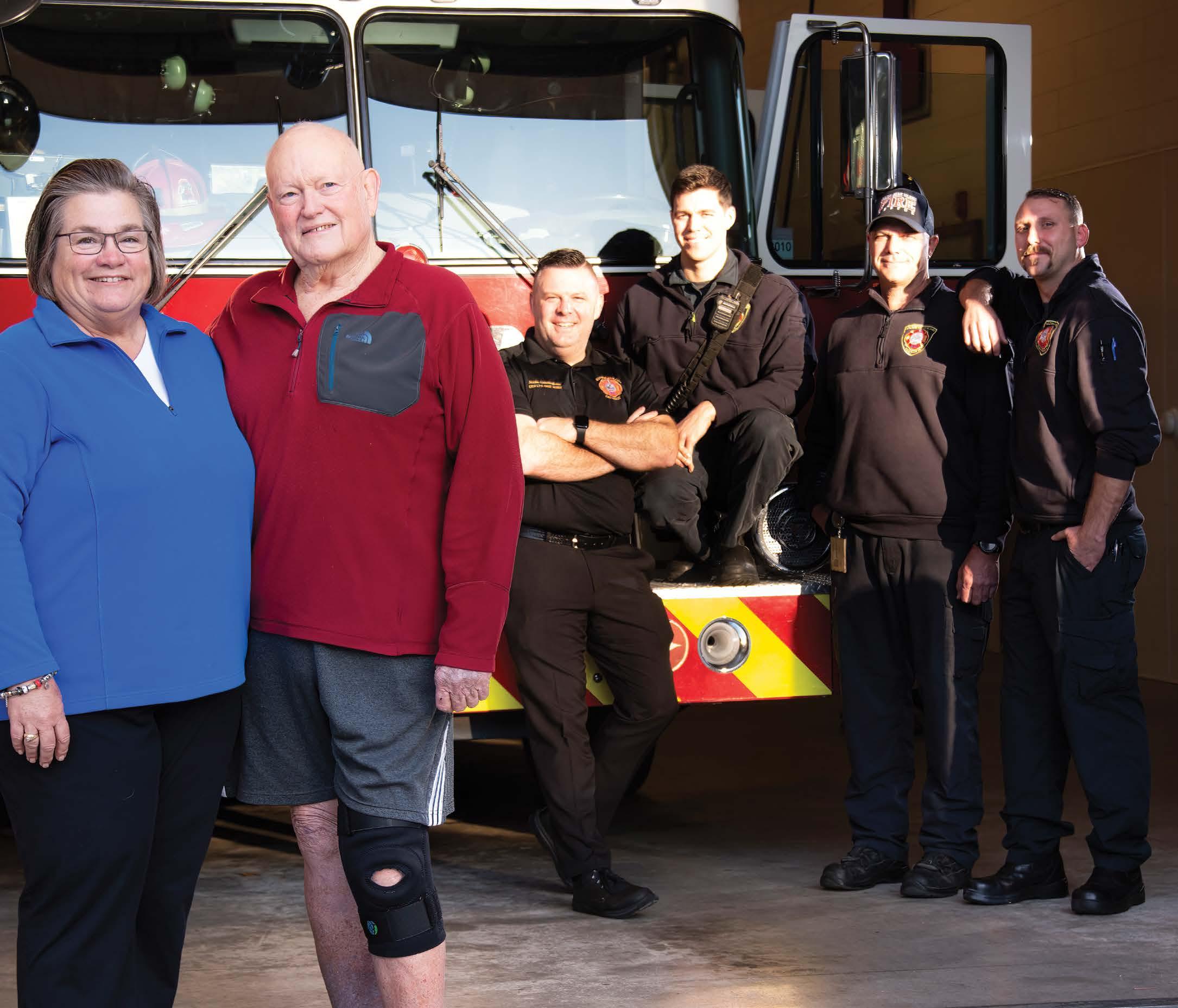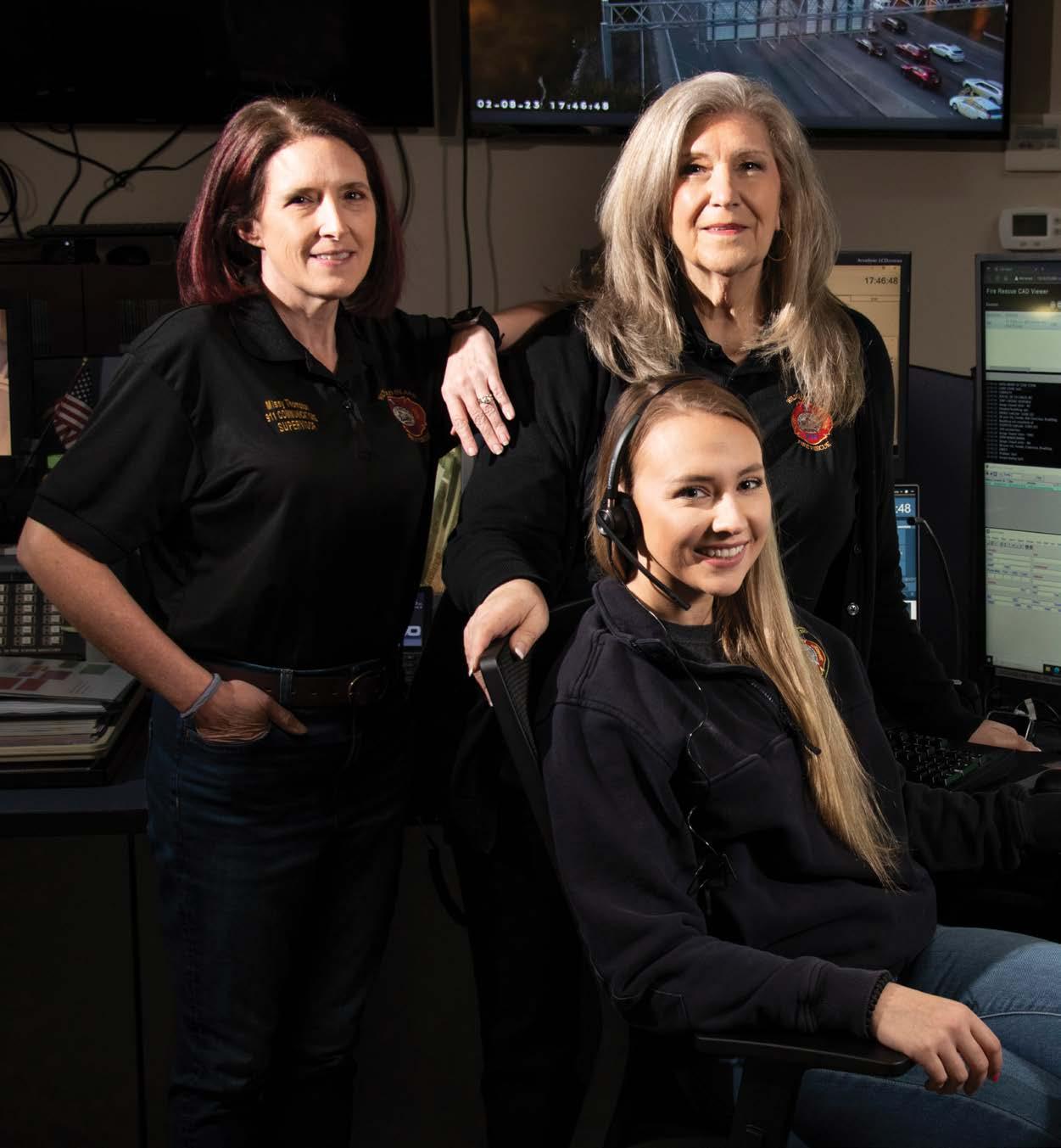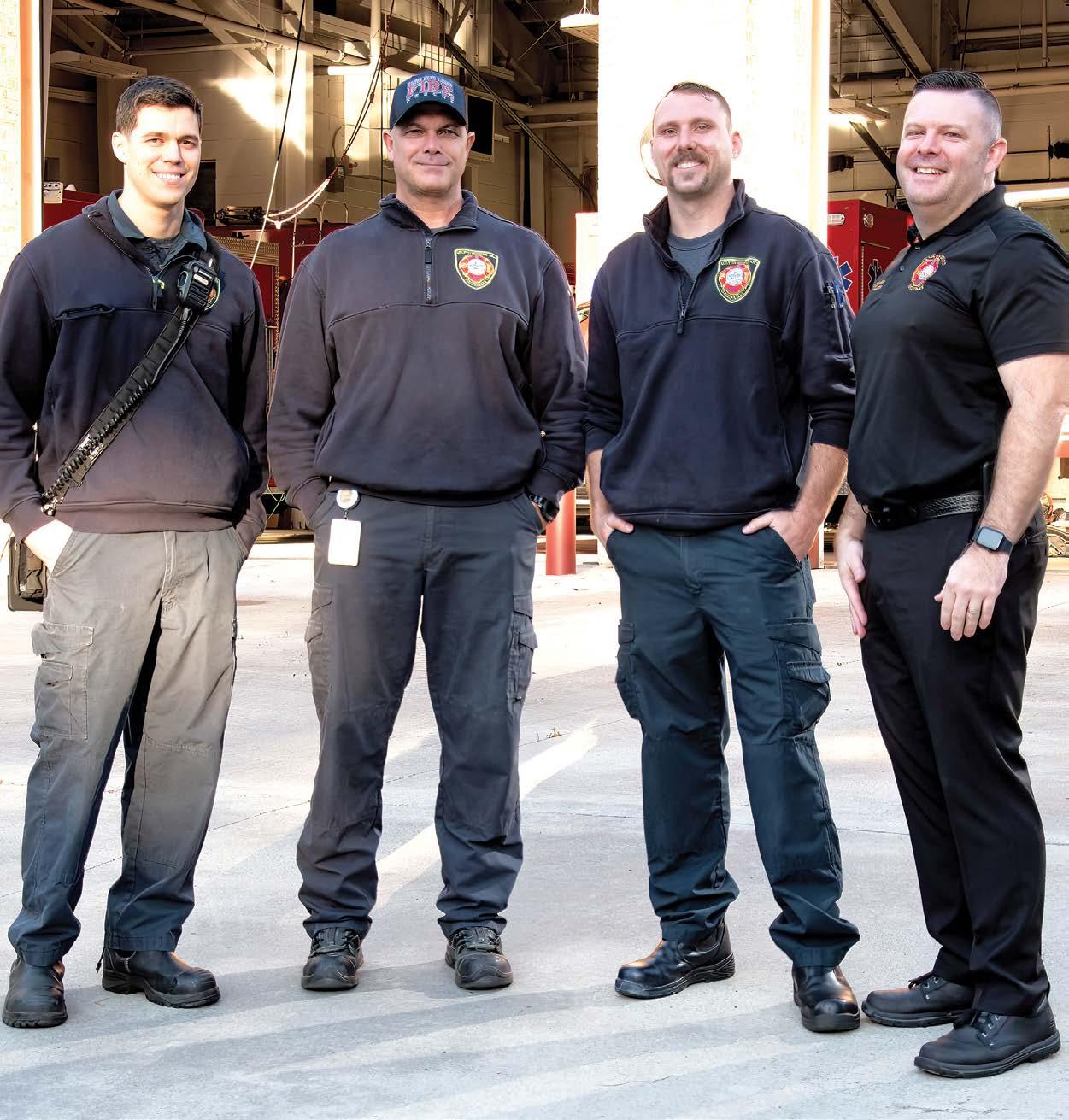
4 minute read
Hilton Head International PIANO COMPETITION Returns for ages 13-17
Courtesy of hhipc.org
The Hilton Head International Piano Competition, one of the leading international piano competitions in the United States, operates with a three-year rotation of events: an adult competition for pianists 18–30 years old, a young artist competition for pianists 13–17 years old, and a festival—BravoPiano!—which showcases past prize winners and other prominent keyboard artists performing music ranging from classical to jazz.
Advertisement
The HHIPC, inaugurated by the Hilton Head Symphony Orchestra in 2002, draws applicants, artists, and audiences from numerous countries the world over, and many HHIPC artists are now enjoying thriving professional careers.
The HHIPC for ages 13-17 returns March 13-18, when 20 young pianists will compete in three rounds for more than $21,000 in cash prizes. The First Prize winner will also be awarded a return performance with the Hilton Head Symphony Orchestra and additional performance engagements.
COMPETITORS THIS YEAR ARE:
Riko Ando, Japan, (15)
David Choi, United States / South Korea, (15)
• William Ge, United States, (15)
• Sawako Harada, Japan, (15)
• Yuhe Jin, China, (15)
• Donghwi Kang, South Korea, (15)
Andrew Li, Canada / Hong Kong, (15)
Caden Lin, United States, (15)
Zarin Mehta, United States, (15)
Takuma Onodera, Japan, (17)
Xinran Shi, United States, (13)
• Rebekah Yinuo Tan, China (16)
• Kevin Wang, Canada, (17)
• Keyi Wang, China, (15)
• Zhonghua Wei, China, (14)
Ruby Wu, Hong Kong, (16)
Lindsey Yang, United States, (17)
Kyle Yeung, United States, (15)
Nathaniel Zhang, United States, (15)
Chengyao Zhou, China, (15)
The most recent adult competition was in March 2022, with 23-year-old Canadian pianist Jaeden Izik-Dzurko selected as First Prize winner from among 20 performers in Hilton Head (who hailed from eight different countries).
The four rounds included two short recitals for each of the 20 competitors, followed by a longer recital for the six semi-finalists, leading to the ultimate round where the three finalists each played a full piano concerto with the Hilton Head Symphony Orchestra and Maestro John Morris Russell.
The winners received a total of $34,000 in cash prizes. Competitors stay in the homes of host families, who provide lodging, meals, transportation, and access to a competition quality grand piano for practice.
Island residents also host the judges for dinners in their homes during the week of competition, and others offer the judges use of their grand pianos for personal practice.
In all, more than 200 volunteers devote their time, talents and energy to help staff the competition events.
HOW ONE WOMAN’S CPR CLASSES HELPED SAVE HER HUSBAND’S LIFE
Written by Barry Kaufman | Photos by Rob
Kaufman
None of us ever really expect an emergency. Life has a funny way of throwing us curveballs, surprising us out of complacency with its infinite capacity for surprising us. True wisdom comes in knowing that the curveball will come eventually – and preparing ourselves for it.
Tamra Avrit’s curveball came one night not long ago when she heard a sudden noise coming down her hallway.
At first brushing it off as the washing machine, she grew suspicious after her husband, Bill, didn’t respond to her calls to the other room.
“He didn’t answer me, so I walked down the hallway, and I saw him sitting at the desk chair in front of his computer,” she said. “This awful noise was coming out of him. I went over and I touched him, and his eyes were open, staring straight ahead.
quick thinking and the critical assistance
He was non-responsive, and his lips were blue.” Panic took hold.
Especially when Tamra, an Android user, suddenly found herself having to use her brand-new iPhone to call 911 and couldn’t figure out how to place the call.
“I felt like I was wasting all this time, so I was super hyper by the time I got through.”
Fortunately, there were two things in her favor. The first was the residual knowledge of a CPR class she’d taken five years prior.

“Cinda Seamon was the CPR educator, and she did a great job making you feel that you could be successful,” she said.
The second thing working in her favor was the capable professionalism of Mackenzie Hrobar, the 911 dispatcher who answered her call.
“Kenzie talking to me was super important. She was so calm and tranquil,” said Tamra. “I just remember I was yelling at Bill, ‘We’re not doing this today.’”
Hrobar talked Tamra through her next steps, guiding her to move Bill to the floor where she could start chest compressions.
“It’s one thing doing it on a dummy. It’s another thing doing it on a loved one,” added Tamra. Nonetheless, she continued administering chest compressions on Bill until help could arrive, pausing only when she began hearing a crunch.
“I told Kenzie, ‘I just heard this crunchy sound. I think I’ve done something,’ and she goes, ‘Put your hands back on and keep compressing. If you broke ribs, it’s OK. He’s gonna live.’”
For what felt like an eternity, but in reality was mere moments, Tamra kept her husband alive. As his heart failed, hers hit 174 beats per minute, according to her Fitbit. It was the dispatcher’s voice in her ear, and the knowledge that the CPR had put in her head, but it was ultimately her own hands that pulled Bill back from the brink.

“It was just one of those calls that really worked out very well from the very beginning, between the wife taking a CPR class and being able to recognize the problem, to our dispatch alerting us,” said Sean Roos, one of the first paramedics on scene. “We were able to define our roles pretty quickly and jump on it. And she was doing chest compressions when we got there. So essentially, we got there, shocked him twice and got him back.”

Tamra’s actions saved her husband’s life, and today Bill is happy, healthy and 50 pounds lighter. But there are many on the island who aren’t as lucky. By their estimates, Hilton Head Island Fire Rescue responds to somewhere around 50 cardiac events like Bill Avrit’s. And of those, just five will survive the incident. As shockingly low as that number seems, it’s actually higher than the national average.
And all it takes to raise it up is to act. The chain of survival, after all, is only as strong as its weakest link.
“Just do something,” said Tamra. “When I was at Savannah Memorial, so many of the medical personnel came up to me and said, ‘Way to do something.’ Evidently there’s a lot of people who won’t touch a loved one. And they panic. But if you do nothing, they die.”
The takeaway being that you can never be too prepared. The unexpected is coming for each of us. All we can do is be ready to face it whenever it comes. To learn more about CPR classes, visit hiltonheadislandsc.gov.









